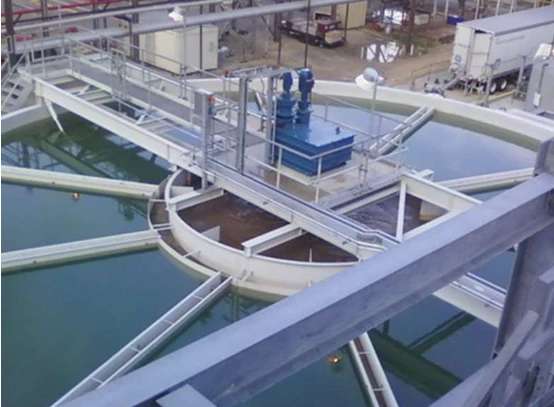
-
 Afrikaans
Afrikaans -
 Albanian
Albanian -
 Amharic
Amharic -
 Arabic
Arabic -
 Armenian
Armenian -
 Azerbaijani
Azerbaijani -
 Basque
Basque -
 Belarusian
Belarusian -
 Bengali
Bengali -
 Bosnian
Bosnian -
 Bulgarian
Bulgarian -
 Catalan
Catalan -
 Cebuano
Cebuano -
 China
China -
 China (Taiwan)
China (Taiwan) -
 Corsican
Corsican -
 Croatian
Croatian -
 Czech
Czech -
 Danish
Danish -
 Dutch
Dutch -
 English
English -
 Esperanto
Esperanto -
 Estonian
Estonian -
 Finnish
Finnish -
 French
French -
 Frisian
Frisian -
 Galician
Galician -
 Georgian
Georgian -
 German
German -
 Greek
Greek -
 Gujarati
Gujarati -
 Haitian Creole
Haitian Creole -
 hausa
hausa -
 hawaiian
hawaiian -
 Hebrew
Hebrew -
 Hindi
Hindi -
 Miao
Miao -
 Hungarian
Hungarian -
 Icelandic
Icelandic -
 igbo
igbo -
 Indonesian
Indonesian -
 irish
irish -
 Italian
Italian -
 Japanese
Japanese -
 Javanese
Javanese -
 Kannada
Kannada -
 kazakh
kazakh -
 Khmer
Khmer -
 Rwandese
Rwandese -
 Korean
Korean -
 Kurdish
Kurdish -
 Kyrgyz
Kyrgyz -
 Lao
Lao -
 Latin
Latin -
 Latvian
Latvian -
 Lithuanian
Lithuanian -
 Luxembourgish
Luxembourgish -
 Macedonian
Macedonian -
 Malgashi
Malgashi -
 Malay
Malay -
 Malayalam
Malayalam -
 Maltese
Maltese -
 Maori
Maori -
 Marathi
Marathi -
 Mongolian
Mongolian -
 Myanmar
Myanmar -
 Nepali
Nepali -
 Norwegian
Norwegian -
 Norwegian
Norwegian -
 Occitan
Occitan -
 Pashto
Pashto -
 Persian
Persian -
 Polish
Polish -
 Portuguese
Portuguese -
 Punjabi
Punjabi -
 Romanian
Romanian -
 Russian
Russian -
 Samoan
Samoan -
 Scottish Gaelic
Scottish Gaelic -
 Serbian
Serbian -
 Sesotho
Sesotho -
 Shona
Shona -
 Sindhi
Sindhi -
 Sinhala
Sinhala -
 Slovak
Slovak -
 Slovenian
Slovenian -
 Somali
Somali -
 Spanish
Spanish -
 Sundanese
Sundanese -
 Swahili
Swahili -
 Swedish
Swedish -
 Tagalog
Tagalog -
 Tajik
Tajik -
 Tamil
Tamil -
 Tatar
Tatar -
 Telugu
Telugu -
 Thai
Thai -
 Turkish
Turkish -
 Turkmen
Turkmen -
 Ukrainian
Ukrainian -
 Urdu
Urdu -
 Uighur
Uighur -
 Uzbek
Uzbek -
 Vietnamese
Vietnamese -
 Welsh
Welsh -
 Bantu
Bantu -
 Yiddish
Yiddish -
 Yoruba
Yoruba -
 Zulu
Zulu
Large Diameter Fiberglass Pipes for Durable and Efficient Water Transport Applications
Large Diameter Fiberglass Pipe A Comprehensive Overview
In recent years, the use of large diameter fiberglass pipe has gained significant traction across various industries, including water supply, sewage, oil and gas, and chemical processing. This innovative piping solution offers numerous advantages over traditional materials such as steel and concrete. As industries continue to seek efficient, reliable, and cost-effective alternatives, large diameter fiberglass pipes emerge as a leading choice.
What is Large Diameter Fiberglass Pipe?
Large diameter fiberglass pipe is a composite piping system made from fiberglass-reinforced plastic (FRP). This material consists of a polymer matrix reinforced with glass fibers, providing a superior strength-to-weight ratio. The manufacturing process involves winding glass fibers around a mandrel, with resin applied to bind the layers. The result is a robust, lightweight, and corrosion-resistant pipe that can withstand high pressure and extreme environmental conditions.
Benefits of Large Diameter Fiberglass Pipe
1. Corrosion Resistance One of the significant advantages of fiberglass pipes is their excellent resistance to corrosion. Unlike metal pipes, which can rust and degrade over time, fiberglass pipes are immune to many chemicals and can last for decades with minimal maintenance. This property is particularly beneficial in industries dealing with aggressive chemicals or in coastal areas with high salinity.
2. Lightweight Design Large diameter fiberglass pipes are substantially lighter than traditional materials, making them easier and more cost-effective to transport and install. The reduced weight translates to lower labor costs and quicker installation times, allowing for increased efficiency in project timelines.
3. Flexible and Durable The inherent flexibility of fiberglass pipes allows them to withstand ground movement and thermal expansion without cracking. This resilience makes them an ideal choice for regions prone to seismic activity or fluctuating temperatures. Their durability also ensures a longer lifespan and less frequent replacement, resulting in lower long-term costs.
4. Hydraulic Efficiency The smooth interior surfaces of fiberglass pipes minimize friction losses, leading to better flow rates and reduced energy consumption for pumping systems. This characteristic makes large diameter fiberglass pipes particularly suitable for water transport and sewage applications, where optimal flow dynamics are crucial.
5. Environmental Sustainability With growing concerns about environmental impact, fiberglass pipes offer a more sustainable alternative compared to traditional materials. Their longevity reduces the frequency of replacements, while the manufacturing process often incorporates recycled materials, contributing to a lower environmental footprint.
large diameter fiberglass pipe

Applications of Large Diameter Fiberglass Pipe
Large diameter fiberglass pipes find applications in various sectors
- Water and Wastewater Management Used for water distribution, stormwater management, and sewage systems, fiberglass pipes are a popular choice for municipalities aiming to upgrade their infrastructure with reliable and durable solutions.
- Oil and Gas In the oil and gas sector, these pipes are utilized for transporting crude oil, natural gas, and wastewater due to their resistance to corrosive substances and high durability.
- Chemical Processing Due to their chemical resistance, large diameter fiberglass pipes are ideal for transporting chemicals, acids, and other hazardous materials safely.
Challenges and Considerations
Despite their numerous benefits, there are challenges associated with the use of large diameter fiberglass pipes. They can be more expensive upfront compared to traditional materials. Additionally, the installation requires specialized skills and knowledge about the unique properties of fiberglass to ensure that joints and fittings are correctly assembled.
Conclusion
The rise of large diameter fiberglass pipe represents a shift toward more innovative and sustainable solutions in various industrial applications. With their impressive properties, including corrosion resistance, lightweight design, and hydraulic efficiency, these pipes are poised to play a crucial role in modern infrastructure development. As industries continue to prioritize durability and environmental impact, the preference for fiberglass piping systems is expected only to grow, paving the way for a more resilient and efficient future.









